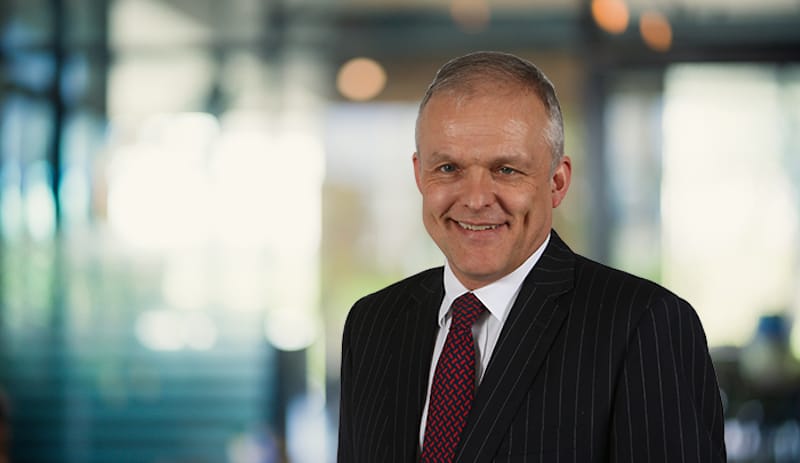Future BCLP trainee, Keenan Taku, delves into the government’s proposed trading system

Among the Labour government’s ambitious plans for achieving economic growth is the introduction of the Private Intermittent Securities and Capital Exchange System (PISCES). Originally proposed by the Conservatives in December 2022, PISCES will be a new regulated trading platform designed to let shares in private companies trade in a controlled, intermittent environment.

Rather than being a single exchange, PISCES will operate as a regulatory regime under which approved third-party platforms, such as alternative trading venues, brokers and even the London Stock Exchange (LSE), will provide the trading infrastructure. The initiative forms part of a wide range of proposals intended to reinvigorate the UK capital markets amid concerns that British companies are increasingly choosing to list in the US – for example, Arm Holdings, a Cambridge-based semiconductor and software design company which chose to list on NASDAQ last year.
HM Treasury plans to lay a statutory instrument before Parliament in May 2025, setting out the legal framework for PISCES. It will be set up as a ‘financial markets infrastructure (FMI) sandbox’ – a way for the government to let companies test new technologies and promote innovation in financial services. The sandbox will operate in a live, structured environment with special oversight, and can allow for temporary waivers or adjustments to regulatory requirements.
Key features
• Non-listed companies — PISCES will mainly serve private companies, but unlisted public companies (including overseas firms) may also be eligible.
• Secondary market — The platform will only allow for existing shares to be traded between current and potential investors, and will not allow companies to raise new capital by issuing new shares like a stock exchange would.
• Reduced regulatory burden — As PISCES will initially run as an FMI sandbox, companies trading on PISCES will not be subject to the full Market Abuse Regulations (MAR) or UK Listing Rules. They will follow tailored disclosure and transparency requirements: more than in a private placement, but less than in the public markets.
• Intermittent trading — Participating companies will decide when the “trading windows” will take place (e.g. quarterly or biannually) and for how long.
• Investor restrictions — Only institutional investors, employees of participating companies, and investors who meet the definition of ‘high net-worth individuals’, ‘self-certified sophisticated investors’ and ‘certified sophisticated investors’ under the FSMA 2000 (Financial Promotion) Order 2005 are eligible to participate. At least initially, retail investors are excluded.
• Tax exemption — The draft statutory instrument provides the power to exempt Stamp Duty and Stamp Duty Reserve Tax from applying on the transfers of shares admitted on PISCES platforms.
The market context
With just 18 new listings on the London Stock Exchange in 2024, the UK’s public equity markets have struggled. With factors such as global economic uncertainty, geopolitical risks, and increased regulatory burdens and costs, it is clear why many companies prefer to stay private for longer and then list elsewhere when market conditions are favourable.
Want to write for the Legal Cheek Journal?
Find out moreThe PISCES proposal comes at a time when access to capital from private markets has seen steady growth, with private capital in the UK now providing £1.2 trillion in funding according to UK Finance. Coupled with greater investment from venture capital and private equity into private companies but fewer opportunities for companies to become public and list their shares on a stock exchange by undertaking an Initial Public Offering (IPO), PISCES could be the crucial link that provides a cross-over between the private and public markets.
Private access to capital
One appeal of PISCES is that it provides an easier way for founders and venture capital or private equity backers to access liquidity in a market where IPOs are less attractive and buyers are hard to find. The platform simplifies share sales, but some investors are sceptical about its benefits. Founders of fast-growing companies may be reluctant to opt in fearing that shares negotiated with trusted VC or PE partners could end up with unknown investors with different visions.
Companies could manage this risk by listing a class of non-voting shares on PISCES and limiting the amount of shares offered, but this could come at the cost of little to no interest, and therefore liquidity, from potential investors interested in having control.
Light touch regulation
Under the statutory instrument, the Financial Conduct Authority (FCA) will approve, supervise and intervene in how PISCES platforms are run. However much of the regulation surrounding market abuse, listing rules, and financial promotions will be disapplied or modified in favour of a more tailored regulatory framework.
While a more ‘hands off’ approach to regulation may encourage more PISCES listings, there should still be strong enough controls to prevent abuse and protect investors. The FCA itself confirmed that without market abuse rules, there is a higher risk than in public markets that some investors, such as employees, could have access to information not available to other investors, bringing the integrity of the market into question.
Although breaches of the MAR will not be sanctioned under PISCES, participants would still be subject to broader laws around fraud and misrepresentation, and will be asked to compensate investors, assuming they are still solvent.
All of this could make for an uneven playing field between investors ‘in the know’ and those who aren’t, and reduces trust and confidence in the system.
It is poignant to remember that last year FCA Chair Ashley Alder warned that, “there are clear dangers in indulging in any sort of race to the bottom in any sort of deregulatory agenda…” in relation to a growing trend of the UK trying to deregulate quickly, with a view to keeping up with the US and boost business activity. Are the lack of guardrails worth the opportunities for investment and liquidity?
Want to write for the Legal Cheek Journal?
Find out moreDecentralised operations
The FCA will delegate much of the rule-setting to the individual operators on admission, disclosure and trading, effectively decentralising its administration. This could prove highly beneficial by creating a competitive ‘private stock exchange market’ where future operators try to outcompete rivals by having lighter onboarding requirements, offering cheaper fees or operating better technology. Competition should lead to smarter, cheaper and faster platforms, as well as expand the choice of listing locations. Different operators may even specialise in different sectors e.g. one operator focusing on biotech startups, another on infrastructure companies.
However, the PISCES operators will ultimately bear no responsibility for the content of disclosures, and will be expected to monitor but not approve them. The FCA does propose a negligence standard to core information disclosure and a higher liability standard for “recklessness or dishonesty” standard for forward-looking statements, but wouldn’t this be more effective if the disclosure was verified? One’s thoughts may turn to when Companies House lacked the statutory powers to verify the accuracy of information it published, so that esteemed characters such as Mickey Mouse and Donald Duck were published as the names of directors of fake companies that were engaged in fraud and money laundering.
That being said, companies seeking investment through PISCES may need to reckon with investors requesting full disclosure of information about the company and its future prospects as institutional investors will likely not give up their usual due diligence checks. While making for a more transparent market, it will erode arguably the most significant advantage of being a private company: confidentiality.
The death of AIM?
Some commentators believe PISCES will be a direct rival to the public equities markets and could prove fatal to the Alternative Investments Market (AIM); the LSE’s junior market for smaller, high-growth companies keen to float but falling short of the requirements of the Main Market. The future of PISCES is wide open, but this prediction is unlikely given that it will not be open to retail investors who freely browse the public exchanges and are more prone to “panic selling” when the market is down.
PISCES does not allow companies to raise new capital which public markets allow for, making it more of a stepping stone to a full listing rather than a direct rival. The LSE’s proposed ‘Private Securities Market’ – making use of the PISCES framework – underscores this co-operation between the public and private markets.
Looking ahead
PISCES represents a bold and potentially transformative attempt to bridge the gap between the private and public markets at a time when companies are increasingly reluctant to go public. By providing liquidity without the burdens of full public market regulation, it could unlock new opportunities for founders, employees, and investors alike. However, its success will hinge on maintaining a careful balance between encouraging innovation and safeguarding market integrity. Without sufficient regulatory guardrails, the very issues that have plagued other lightly regulated systems could resurface, damaging trust and undermining the platform’s credibility before it has had a chance to flourish.
Whether PISCES becomes a springboard for UK growth or a cautionary tale of deregulation gone too far will ultimately depend on how wisely its freedoms are managed.
Keenan Taku is a future trainee solicitor at BCLP. He has a strong interest in capital markets and investment funds, holding a Capital Markets and Securities Analyst certification from the Corporate Finance Institute.
The Legal Cheek Journal is sponsored by LPC Law.











